















Dear Friends, Partners, and Supporters,
As we reflect on 2024, I want to take a moment to acknowledge and appreciate the dedication, resilience, and collaboration that have carried us forward This year has been marked by progress and challenges, reminding us that real impact is only possible when we work together
In a time of shifting landscapes and evolving healthcare needs, the strength of our partnerships and collective action has never been more critical Through our network's commitment, including hospitals, nursing colleges, partners, and communities we have been able to adapt and continue delivering essential services where they are needed most

This year, we have strengthened programs, expanded access to quality care, and equipped more people with the tools they need to thrive Yet, we recognize that our work is far from over The challenges ahead demand ongoing collaboration, bold solutions and resolutions, and shared responsibility Through these strong and strategic partnerships, we will continue to navigate uncertainty, scale impact, and build resilient, sustainable systems that leave no one behind
This brief will highlight our progress, the lessons we have learned, and the impact of our collective efforts It will also outline the path forward, emphasizing the continued importance of collaboration, innovation, and commitment to ensuring quality care and sustainable change
As we move forward, we remain committed to working hand in hand with our partners to ensure that every individual, every family, and every community has access to the care and support they deserve Thank you for standing with us, believing in our mission, and being an integral part of this journey Together, we are creating a healthier, stronger future for all
With gratitude,
By Mphatso Nguluwe-Chikhwaza (Mrs.) Chairperson, CCAP Surgical Network
Executive Director, Synod of Livingstonia Health Department

In 2024, we made significant progress in strengthening healthcare training and quality We expanded our Nurse Educator Program across three hospitals, conducted a Quality Improvement Orientation Workshop for healthcare teams, and facilitated the first phase of specialized critical care training for HDU and ICU nurses Additionally, we contributed to the regional healthcare newsletter, sharing best practices and success stories.
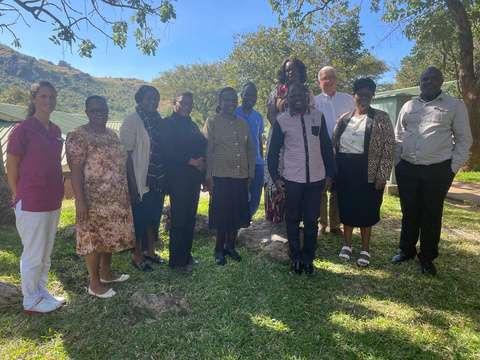
Nurse educators are better equipped to train future healthcare professionals, improving the skills of nurses and the quality of care provided Healthcare teams now have increased access to essential tools to enhance standards and efficiency, leading to better patient outcomes. Phase one of the specialized training for critical care nurses is strengthening lifesaving services. Ongoing specialized training will ensure patients receive the highest level of care when they need it most. Sharing insights through the newsletter is fostering knowledge exchange and continuous learning across the healthcare sector
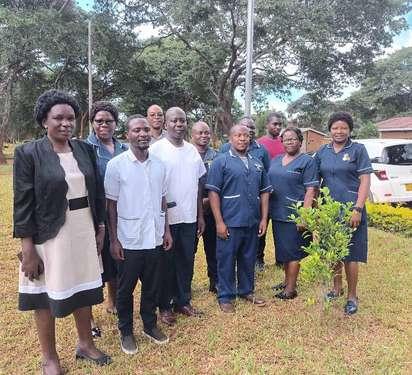
Stronger nurse education leads to a more skilled workforce, directly improving patient care and health outcomes. Quality improvement practices make hospitals safer and more efficient, ultimately saving lives Enhanced critical care capacity means that patients in urgent need receive better treatment, increasing survival rates. By spreading knowledge and best practices, we are inspiring innovation and collaboration across healthcare systems, driving long-term improvements in patient care.
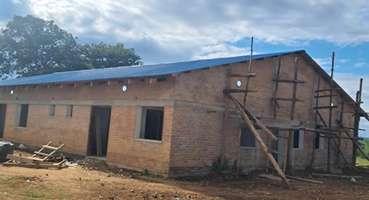
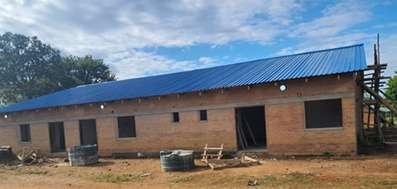
David Gordon Memorial Hospital (DGMH) took a major step in improving surgical care by constructing a brand-new theatre block with funding from Beit Trust The construction is now complete, bringing them closer to enhancing surgical services for the community.
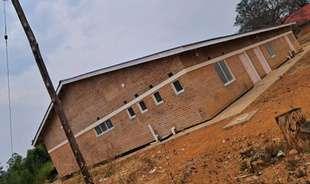

With the building phase finished, efforts are now focused on equipping the theatre to make it fully operational. This new facility will increase surgical capacity, reduce wait times, and improve patient outcomes for those in need of critical and life-saving procedures.
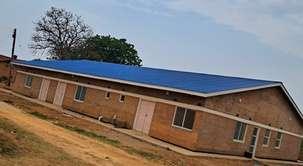
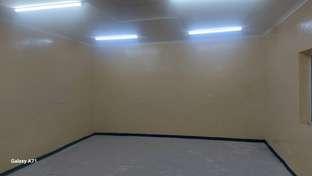
A fully equipped theatre means more patients can receive timely surgical care, reducing the need for referrals to distant facilities This expansion strengthens healthcare infrastructure, ensuring greater access to quality medical services and improving health outcomes for the entire community.
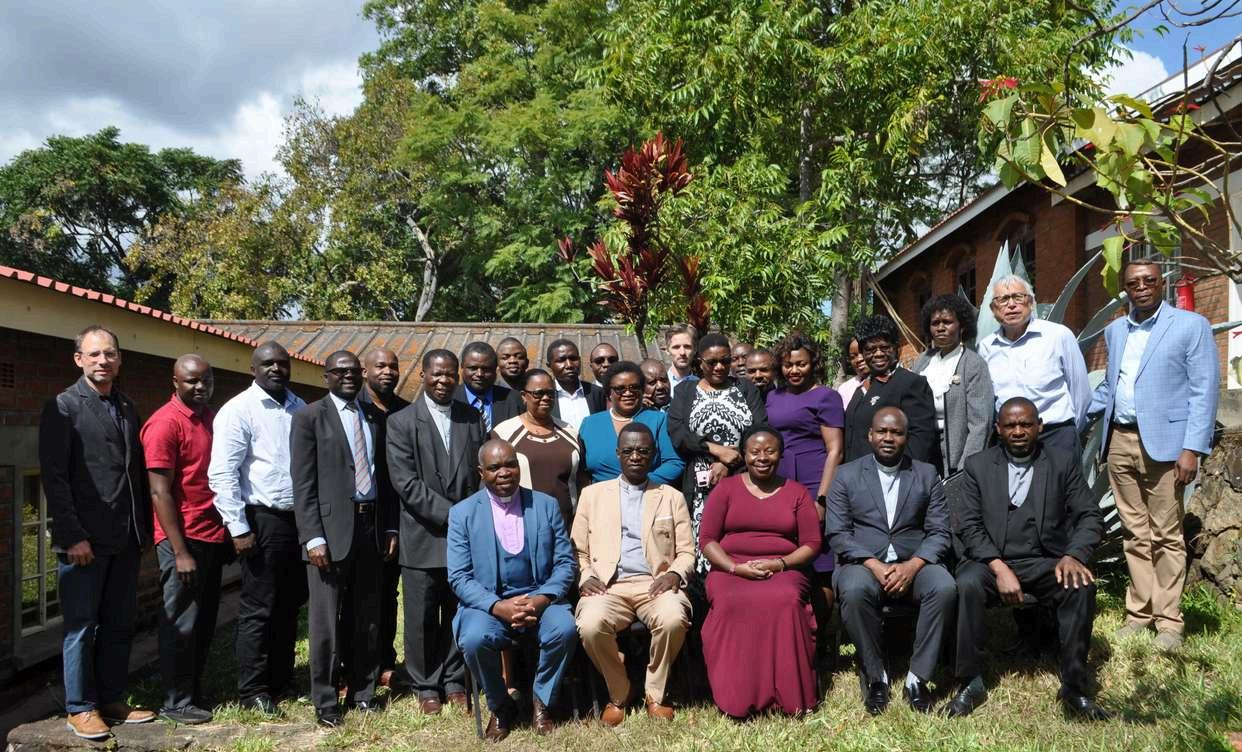
In May 2024, over 30 network members including the three Synods, Hospitals, Nursing Colleges, and MBF gathered for the Network Council Meeting to reaffirm their commitment to strengthening healthcare systems. Discussions centered around the 2030 Network Agenda, focusing on Quality, Empowerment, and ONEvoice as guiding pillars Key action points included expanding internet access, strengthening advocacy, and optimizing cost and quality to improve patient care. A major milestone was MBF’s 1 Billion MK investment to enhance surgical services, alongside efforts to reinforce governance, monitoring, and surgical residency recruitment for long-term sustainability.

The network is taking concrete steps to improve healthcare accessibility, digital connectivity, and policy influence Increased investments in surgical services will expand access to life-saving procedures, while governance improvements and training initiatives will ensure a steady pipeline of skilled healthcare professionals. The focus on advocacy and digital solutions strengthens communication and efficiency, enabling institutions to deliver higherquality care to their communities
By aligning efforts under a shared vision, the network is building a more resilient, highquality healthcare system that will impact generations to come. Expanded surgical capacity means fewer delays and better patient outcomes, while strong governance and strategic advocacy help shape sustainable healthcare policies Through collaboration, this network is not just improving individual institutions but transforming the healthcare landscape to create lasting, meaningful change.
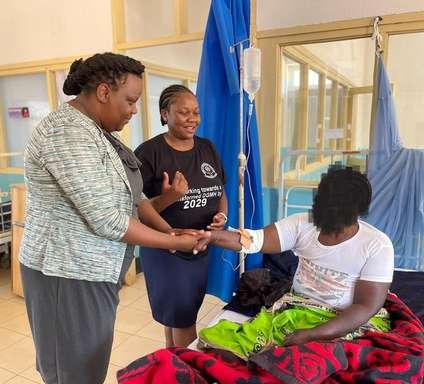
In 2024, the Spiritual Ministry Program continued to transform healthcare across CCAP hospitals by integrating spiritual care into patient and staff support Through leadership engagement, strategic planning, and capacity building, hospitals strengthened spiritual resilience, deepened patient care, and fostered a strong sense of mission. Key achievements included the launch of Spiritual Ministry Plans at multiple hospitals, training over 400 staff members in spiritual care, and integrating faith-based practices into daily hospital life.

Hospitals now have structured Spiritual Ministry Plans to guide their efforts, ensuring that spiritual care remains a core part of healthcare services Staff members are better equipped to offer holistic patient support, with trained professionals providing bedside evangelism, chaplaincy, and prayer services. Regular chapel gatherings and faithbased initiatives are strengthening staff morale, creating a sense of unity and renewal within hospital communities.
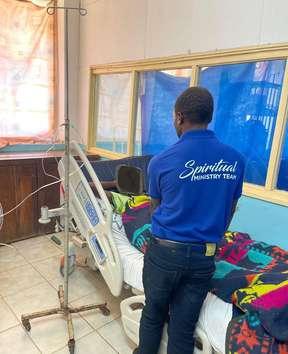
A strong spiritual care framework enhances patient well-being, reduces anxiety, and fosters hope during difficult times. Staff resilience has improved, with a renewed sense of purpose and reduced burnout among healthcare workers. By aligning hospital operations with spiritual care principles, CCAP hospitals are ensuring long-term impact, creating an environment where both patients and staff receive compassionate, holistic care that nurtures both body and spirit

Since 2018, Nkhoma Mission Hospital has been at the forefront of the Quality Improvement Program (QIP), aligning with national and international standards to enhance healthcare service delivery. This commitment goes beyond clinical care, extending into management, leadership, human resources, administration, and facility maintenance, ensuring a culture of excellence at every level. The impact of this dedication is now evident Nkhoma Mission Hospital was awarded a prestigious threestar rating by the Quality Management Directorate, Ministry of Health, a reflection of their teams' hard work and commitment.
Mulanje Mission Hospital also achieved significant progress, earning a two-star rating, marking a steady advancement toward accreditation and excellence. These ratings are more than just acknowledgments; they represent safe, efficient, patient-centered care transforming lives.
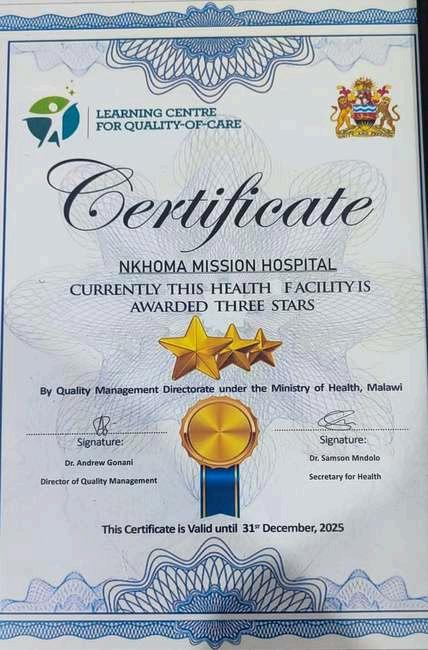
To expand the impact of QIP and foster collaboration within the network, Nkhoma Mission Hospital has two trained and accredited national assessors in quality improvement These assessors were part of the team that assessed and mentored Mulanje Mission Hospital and Ekwendeni Mission Hospital, guiding them in establishing structured quality improvement systems and developing comprehensive work plans.
The journey toward healthcare excellence is ongoing and much remains to be done However, one thing is certain—through commitment, collaboration, and a relentless drive for improvement, we are not just enhancing hospital systems but transforming lives. This is the future of healthcare, and we are building it together.
This data report provides key insights designed to enhance decision-making, optimize resource allocation, and improve surgical healthcare outcomes within the Surgical Network. Covering the reporting period from January to June 2024, the data was selfreported to MBF by five hospitals within the Surgical Network, utilizing varied collection methods While variations in data definitions may exist, and further validation is recommended to ensure consistency and accuracy, the findings offer a valuable foundation for analysis.
The data visualizations highlight critical trends and metrics at the Network level, including monthly trends, total surgeries performed, gender distribution, and age group breakdowns In addition to informing strategic planning and operational improvements, this report aims to stimulate healthy, evidence-based discussions that foster shared learning and drive continuous improvement across the Surgical Network.






LeadershipEngagementDrivesSuccessfulProgramAdoption
Strong leadership buy-in is essential for effective program implementation. The work accomplished in 2024 has demonstrated that when leadership is engaged, program adoption improves, ensuring sustained commitment and institutional support.
TurningPlansintoActionisKeytoAchievingMeaningfulImpact
Clear implementation strategies, accountability, and measurable goals are essential for translating plans into real impact Without structured follow-through, initiatives risk stagnation Establishing concrete action plans, setting milestones, and regularly tracking progress ensures that ideas move beyond discussions and result in meaningful change.
CollaborationEnhancesImpactandIntegration
Effective teamwork and collaboration are essential for strengthening programs
Fostering a culture of shared responsibility and collective effort enhances integration, efficiency, and long-term sustainability.
FinancialandLogisticalChallengesRequireStrategicPlanning
Limited funding and logistical constraints highlight the need for diversified funding strategies, proactive budgeting, and efficient resource allocation to ensure program sustainability and resilience.
OperationalEfficiencyNeedsImprovement
Delays in resource allocation, staff turnover, and ineffective communication can hinder progress. Streamlining operational processes and improving coordination through clear communication can enhance continuity and productivity.
These lessons provide a roadmap for a stronger, more resilient surgical health network that can overcome challenges and achieve lasting impact.


These priorities will help drive long-term impact, sustainability, and stronger healthcare systems:
DeepeningLeadershipEngagement
Strengthen leadership forums and integrate support into program planning to ensure sustained commitment and strategic direction
TranslatingWordsintoAction
Move from discussions to measurable results by setting clear implementation roadmaps, tracking progress with defined milestones, and ensuring accountability at all levels
ImprovingOperationalEfficiency
Streamline processes, enhance communication structures, and invest in staff retention strategies to ensure continuity, productivity, and program success.

EnhancingCollaborationand KnowledgeSharing
Strengthen teamwork through Working Groups and cross-functional engagement
StrengtheningFinancialand LogisticalResilience
Diversify funding sources, improve budgeting strategies, and establish resource-sharing frameworks to enhance sustainability and reduce financial risks
EnhancingSurgicalCapacity
With the new theatre block at David Gordon Memorial Hospital completed, the focus now shifts to equipping, staffing, and launching operations to expand surgical capacity and improve healthcare access.
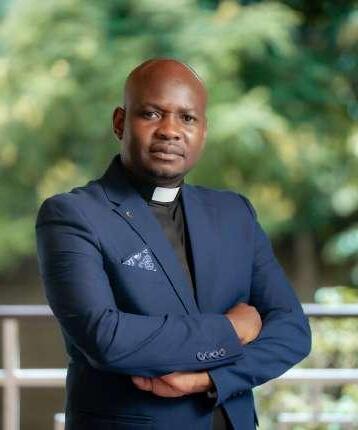
Rev.B.Maulidi
Deputy General Secretary
CCAP Synod of Blantyre
CCAP Blantyre Synod under the Surgical Network through MBF has greatly improved governance system in our hospitals by equipping board of directors with knowledge and skills in strategic leadership and governance oversight and this has assisted in gaining more expertise, that has improved our Surgical team members in service delivery, improved access to Surgical care and in the process saved lives of the vulnerable people looking for Surgical assistance. We continue to pray for more collaboration with our sister synods Nkhoma and Livingstonia as well as MBF and a strong team of empathetic Surgeons to serve others in our hospitals.
We appreciate that the CCAP Synod of Livingstonia has been part of this network since its inception. The strides that have been made are commendable and worth mentioning are the board trainings and the development of strategic plans for our three hospitals It is my prayer that more effort will be put in so that the actual goal of the network can be realized.
I should say, I had and still have very high hopes when I heard about this network and my immediate thinking was that the CCAP will soon take over the health care services in Malawi. It is my belief that with increased momentum, this network will be the pride of our church in the provision of health care.
I applaud the network for connecting the three Synods that they can have one common ground in their service to the masses. May Proverbs 27:17 guide our Synod Hospitals as they work together- ‘As iron sharpens iron, so one person sharpens another’ This signifies the idea of mutual benefit and growth through connection with others.
God bless you!


Rev.IsaiahVMhone
Deputy General Secretary
CCAP Synod of Livingstonia

The surgical network supported by the Medical Benevolence Foundation at Nkhoma Mission Hospital, one of the key institutions of the Nkhoma Synod of the Church of Central Africa Presbyterian (CCAP), has had a profoundly positive impact on the delivery of surgical care in Malawi
1
Increased Surgical Capacity: The network has enabled the hospital to increase its surgical capacity, addressing the critical shortage of surgeons in Malawi
2.
Surgical Residency Program: The launch of a surgical residency program in 2022 provided training opportunities for local doctors, ensuring a sustainable supply of skilled surgeons in the country.
Improved Patient Outcomes: The network has contributed to better patient outcomes through enhanced surgical care, transforming lives of patients who previously lacked access to specialized surgical services. 3
The surgical network's impact aligns with the Nkhoma Synod's mission to provide holistic care to the community, addressing physical and spiritual needs The network has helped the Synod fulfill its mandate to serve the most vulnerable populations by strengthening surgical care.
The continued partnership between the Medical Benevolence Foundation and Nkhoma Synod is expected to enhance further the quality and accessibility of surgical care in Malawi, ultimately contributing to the overall well-being of the community.

RevJaleckDKachipanda Deputy General Secretary CCAP Nkhoma Synod

Dear Friends and Partners in Mission,
As we reflect on the work accomplished, I want to take a moment to give thanks for each of you. This network is more than a collaboration it is a calling, a ministry, and a testament to God’s faithfulness in providing healing and hope. You, the dedicated mission hospitals, nursing colleges, and partners, are the hands and feet of this work, serving communities with compassion and excellence. I am humbled to stand alongside you, supporting and championing the life-changing initiatives you lead
Through your unwavering commitment, we have strengthened healthcare training, expanded surgical capacity, and provided essential care to those in need. Every life touched, every skill imparted, and every act of service is a reflection of the love and mission we share. Your faith-driven dedication continues to be a light in the communities you serve, and I am deeply grateful to witness and support the impact of your ministry.
As we move forward, may we remain steadfast in our calling, united in purpose, and anchored in faith. The work is not ours alone it is God’s work, entrusted to us for His glory. Thank you for embracing this mission with courage and devotion. This is your network, your ministry, and together, we will continue to bring healing, dignity, and hope to all who seek care
With gratitude and blessings,
Mike Sharpmack VP International Hospital Advisory Service Medical Benevolence Foundation
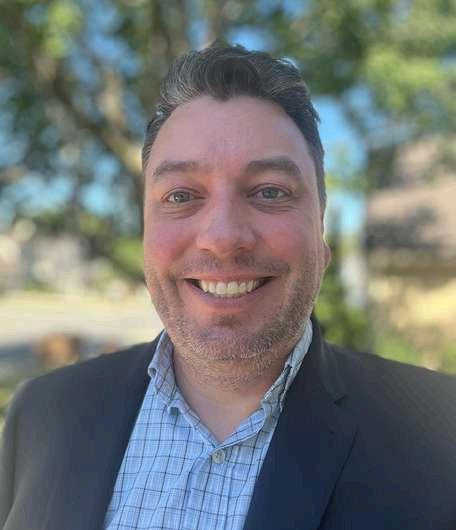
Accountability, Commitment, Communication, Transparency, Empowerment, Action


